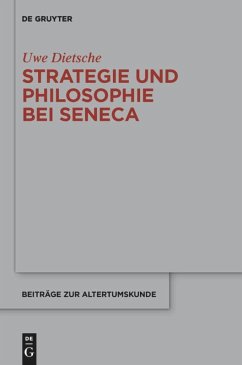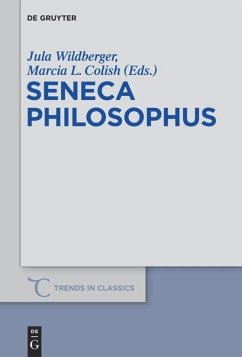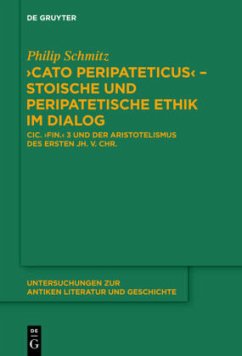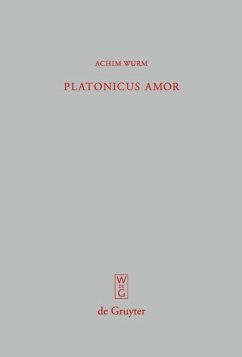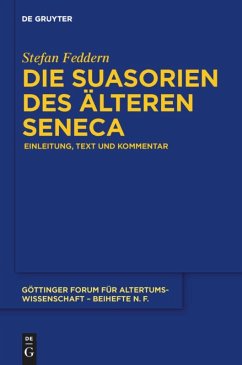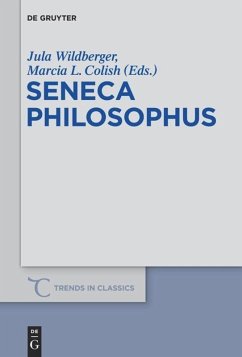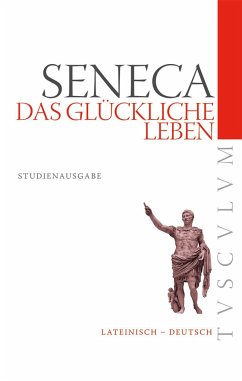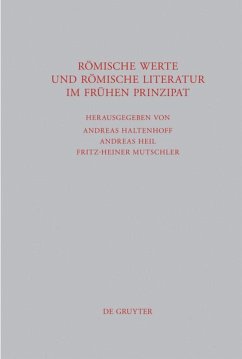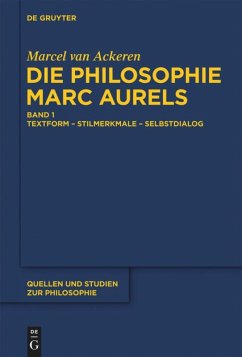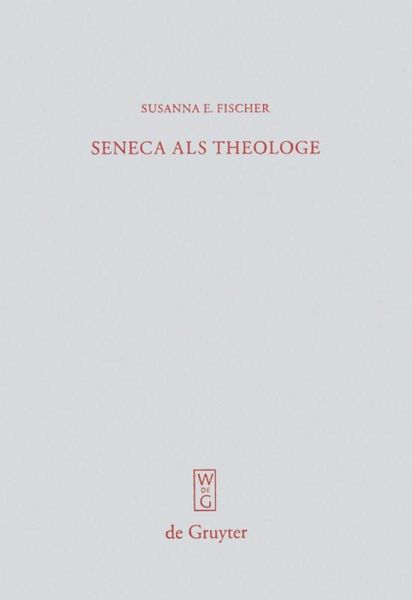
Seneca als Theologe
Studien zum Verhältnis von Philosophie und Tragödiendichtung

PAYBACK Punkte
0 °P sammeln!
The relationship between "Seneca philosophus" and "Seneca tragicus" is still fundamental to any interpretation of his tragedies. The author focuses on this problem within the field of theology. She analyses Seneca's understanding of providentia, and thus the question of theodicy, in his philosophical writings and plays, as well as his view of fatum , and thus thefreedom of the will. In contrast to previous studies, which were primarily concerned with his dramas and only dealt with the philosophical works in passing, it is the theology of his philosophical writings that is the starting point for Fischer, allowing the problems they deal with to be applied to the interpretation of his dramas.
Das Verhältnis des "Seneca philosophus" zum "Seneca tragicus" ist für die Interpretation von Senecas Tragödien noch immer entscheidend. Die Autorin widmet sich dem Problem im Bereich der Theologie. Als zentrale theologische Problemfelder untersucht sie in Senecas philosophischen Schriften und Tragödien sein Verständnis von providentia und damit die Theodizeefrage sowie sein Verständnis des fatum und damit die Willensfreiheit. Anders als die bisherigen Untersuchungen, deren Interesse vorrangig den Dramen galt und die die philosophischen Schriften nur am Rande berücksichtigten, bildet in dieser Studie die Theologie der philosophischen Schriften den Ausgangspunkt, um deren Problemstellungen auch für eine Deutung der Dramen fruchtbar zu machen.
Im Gegensatz zu den Forschungspositionen, die Senecas Dramen entweder als philosophische Lehrstücke oder als Negation der stoischen Philosophie verstehen, erhellt die von der Autorin gewählte Vorgehensweise Senecas Bezugnahme aufphilosophische Fragestellungen innerhalb der Dramen. In ihnen setzt sich Seneca im Gedankenexperiment mit Problemen und Aporien auseinander, die auch im philosophischen Diskurs der Stoa nicht zufriedenstellend aufzulösen sind.
Im Gegensatz zu den Forschungspositionen, die Senecas Dramen entweder als philosophische Lehrstücke oder als Negation der stoischen Philosophie verstehen, erhellt die von der Autorin gewählte Vorgehensweise Senecas Bezugnahme aufphilosophische Fragestellungen innerhalb der Dramen. In ihnen setzt sich Seneca im Gedankenexperiment mit Problemen und Aporien auseinander, die auch im philosophischen Diskurs der Stoa nicht zufriedenstellend aufzulösen sind.





